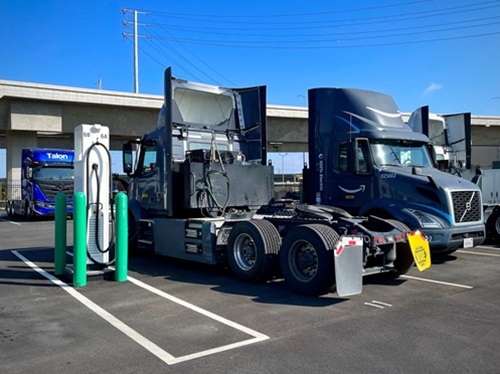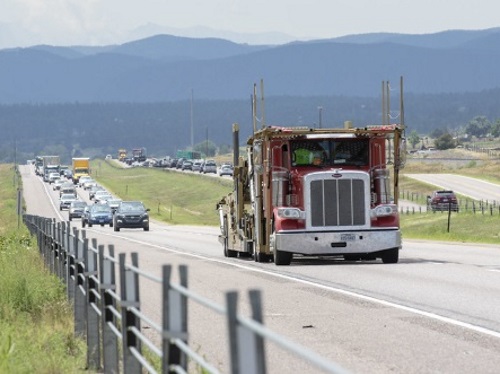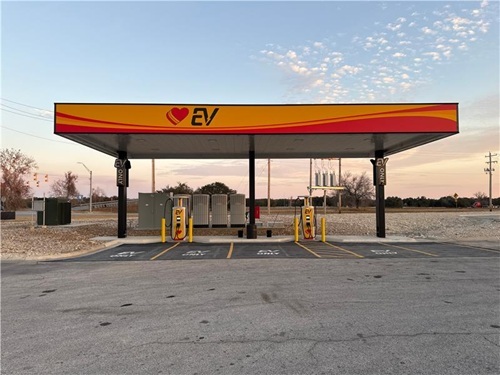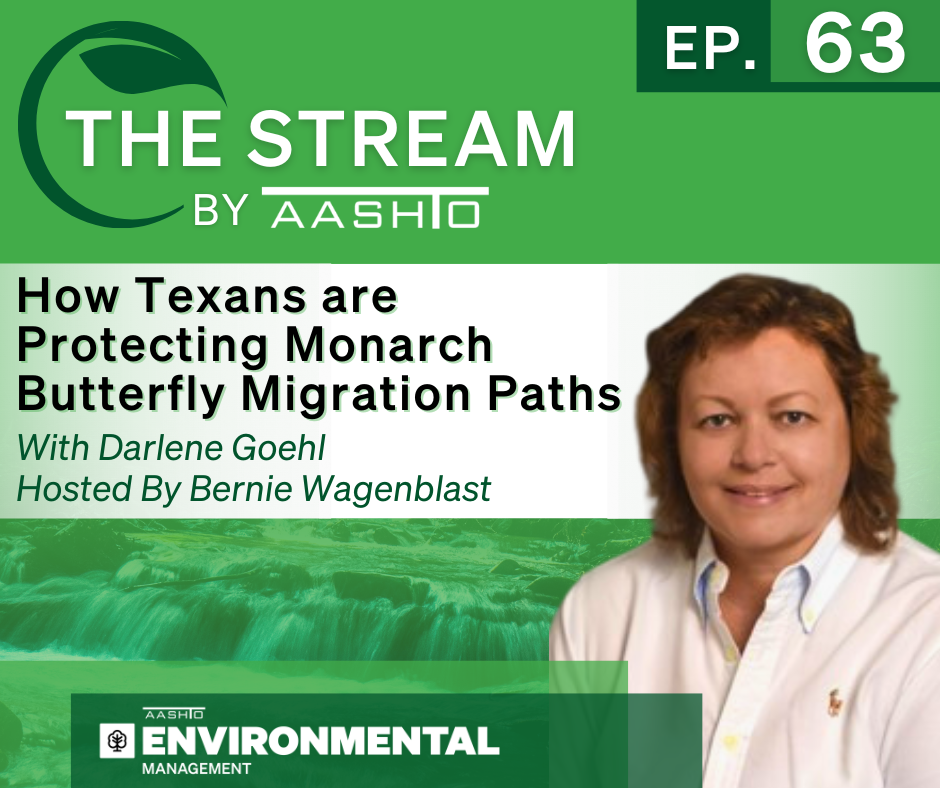The Colorado Department of Transportation, the Colorado Energy Office, and the Colorado Department of Public Health & Environment recently unveiled the daft of a “Clean Truck Strategy” that seeks to lower greenhouse gas or GHG emissions from heavy- and medium-duty vehicles by at least 45 percent statewide by 2050.
[Above photo by the Colorado DOT]
That strategy is part of a package of initiatives undertaken by Governor Jared Polis (D) to improve air quality and reduce emissions while saving money for citizens and small businesses.
The Colorado DOT noted in a statement that heavy- and medium-duty vehicles include semi-trucks, school buses, snowplows, delivery vans, large pick-up trucks, and many different vehicle types in between. The agency added that they are the second-largest source of GHG emissions in the state’s transportation sector, contributing 22 percent of on-road GHG emissions despite being less than 10 percent of all Colorado vehicles.
This new multi-agency strategy seeks to accelerate clean truck adoption to help fight climate change, improve air quality, and help communities “disproportionately impacted” by transportation pollution emissions, Colorado DOT said.
[Editor’s note: At the national level, the U.S. Environmental Protection Agency is proposing new clean air standards for heavy-duty vehicles and engines starting in model year 2027. The proposed standards would reduce emissions of smog- and soot-forming nitrogen oxides or NOx from heavy-duty gasoline and diesel engines while updating GHG standards for select commercial vehicle categories. Overall, the EOA expects its proposed rule to reduce NOx emissions from trucks by as much as 60 percent by 2045.]
The strategy also predicts that owners of medium- and heavy-duty trucks – most of whom are small businesses – could save an estimated $5.8 billion by 2050 from reduced vehicle maintenance costs and fuel cost savings by switching to zero-emission vehicles, the agency noted.
The multi-agency Clean Truck Strategy also includes a “prioritized set” of 34 actions that state agencies will implement to support the transition to zero-emission heavy- and medium-duty vehicles across seven different categories of initiatives, including procurement policies and programs, vehicle incentives and financing, infrastructure planning and investments, utility strategies, workforce development, and regulatory actions.
The plan also relies in part on proposals with the governor’s fiscal year 2023 budget plan, including a new electric school bus incentive program and a clean truck replacement program, alongside new federal funding opportunities to build out electric vehicle charging infrastructure.
As part of this multi-agency clean truck draft, the Colorado DOT said Gov. Polis’ administration is expected by the end of 2022 to submit a request to set a hearing to the state Air Quality Control Commission to consider adopting rules to reduce pollution from diesel vehicles and to further support the transition to zero-emission trucks and buses.
 Electric Vehicles
Electric Vehicles



